Expert Diploma in
High Abilities (High Intellectual Potential)
In partnership with:


Start:
August 31, 2026
End:
December 18, 2026

No. of credits:
12 ECTS credit
![]()
modality:
Online. Synchronous weekly live sessions.
![]()
Price:
1.800€*
*Discounts (not cumulative)
10% until June 11
10% for internship supervisors (validation by presenting the appointment letter from the university)
12% for alumni
15% registration (minimum of 5 professionals from the same institution)
The goal of this diploma is to train participants as proactive educational agents, capable of effectively serving the student body with high intellectual potential.
Through this course, participants will learn how to detect students with high intellectual potential in the classroom , fostering the positivedevelopment of the student body. In addition, the course will provide participants with the tools to carry out intervention processes based on scientific evidence, favoring the academic and staff growthof their students with high intellectual potential.

training designed and tutored by specialists in the field of high abilities actively working in regular and enrichment classrooms for highly demanding teachers, professors and counselors.

The techniques and resources addressed in the course are currently being used by hundreds of active teachers in centers with specific plans of attention to student body with high intellectual potential.
profile of the participant

This course is aimed at professionals in the field of educational and psycho-pedagogical field with a high motivation for change and improvement of their own internship professor. It is not essential to be active during the course or to have previous training in the field of high abilities.
![]()
Graduates in Early Childhood Education , Primary Education , Pedagogy or equivalent qualifications.
![]()
Active teachers from the stage of Early Childhood Education to the Adult Education .
![]()
Members of the orientation department of educational centers, regardless of their degree program.
![]()
Heads / coordinators of associations or entities of character social.
![]()
Other graduates university students interested
exit profile

At the end fill in the course, participants will be able to:

To critically analyze the normative foundations and plans of attention to the high potential student body of specific educational institutions.

Identify, within their classroom and educational center, the core topic aspects to detect cognitive, social or emotional needs linked to intellectual exceptionality, distinguishing them from those that are secondary or not significant.

To identify students who may benefit from differentiated attention due to their high intellectual potential.

Create safe and stimulating learning environments for the most capable student body that encourage their active participation in both individual and group activities, contributing to a positive classroom climate.

Design pre-differentiated or differentiated intervention plans, consistent with the diversity of the classroom and aligned with the specific needs of the high potential student body

Implement enrichment proposals based on the interests, learning styles and strengths of their student body.

Use appropriate digital resources to serve students with high abilities, including their monitoring and corresponding assessment assessment.

To develop curricular expansion proposals and promote, on a solid basis, school flexibilization processes.

Critically evaluate the benefits and limitations of any didacticproposal , general or specific, in terms of its applicability and effectiveness for the student body with high abilities.
Course program

module 1
RATIONALE AND DETECTION OF HIGH INTELLECTUAL POTENTIAL
-
topic 1. Intelligence as a fundamental element
-
topic 2. Approach to the concept of high abilities
-
topic 3. In context, everything is easier to understand
-
topic 4. Usual characteristics?
-
topic 5. Special considerations for the professional
-
topic 6. Special profiles and additional considerations
-
topic 7. The screening process in internship
module 2
EDUCATIONAL INTERVENTION
-
topic 8. Educational foundation
-
topic 9. Didactic arrangement
-
topic 10. General measures
-
topic 11. Advanced general measures
-
topic 12. Specific Measures: educational enrichment
-
topic 13. Specific measures: curriculum acceleration

22 practices in real context with formative feedback.
diploma teacher


César Arellano is a graduate in Pedagogy with an extraordinary award from the Complutense University of Madrid and Master's Degree in Attention to High Ability Students from the University of Connecticut. Founder of the Renzulli Center for the development of talent (2014) and High Potential (2025), he has promoted projects in partnership with the Renzulli Center in the USA to support schools and families in the identification and development of high intellectual potential. With experience as a research technician at TEA Ediciones, he leads training and accompaniment processes in educational centers at national and international level and is a professor of the Master's Degree in Educational and Psychological Intervention at the University of Navarra. Since 2012 he is also reviewer of the Journal of Education of the Ministry of Education.
Methodology and evaluation

THREE requirements MUST BE FULFILLED requirements
1. fill in totality of the video lessons
2. Must pass a minimum of 50% of the quizzes proposed in the modules.
3. Submit all the internships.
If you would like to take the course, apply for admission through the admissionportal .

